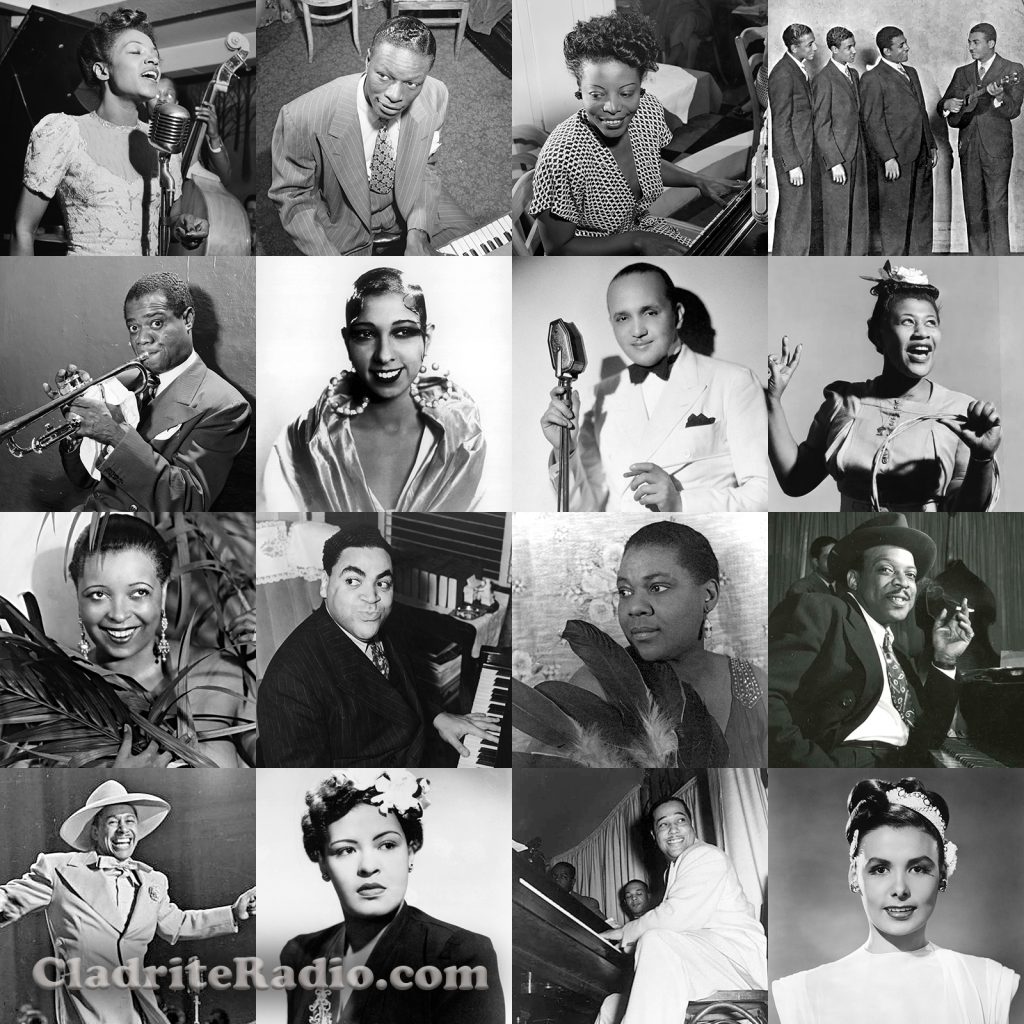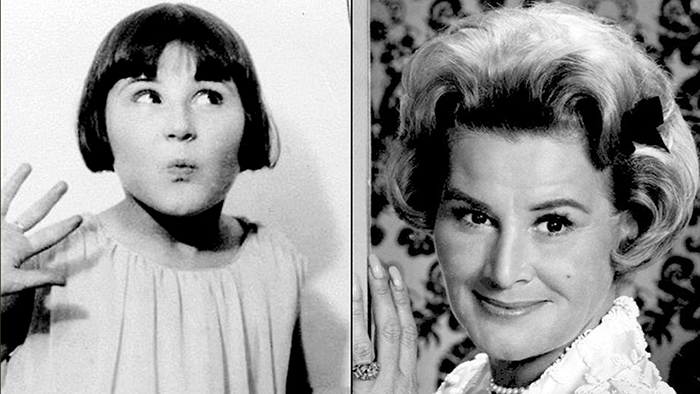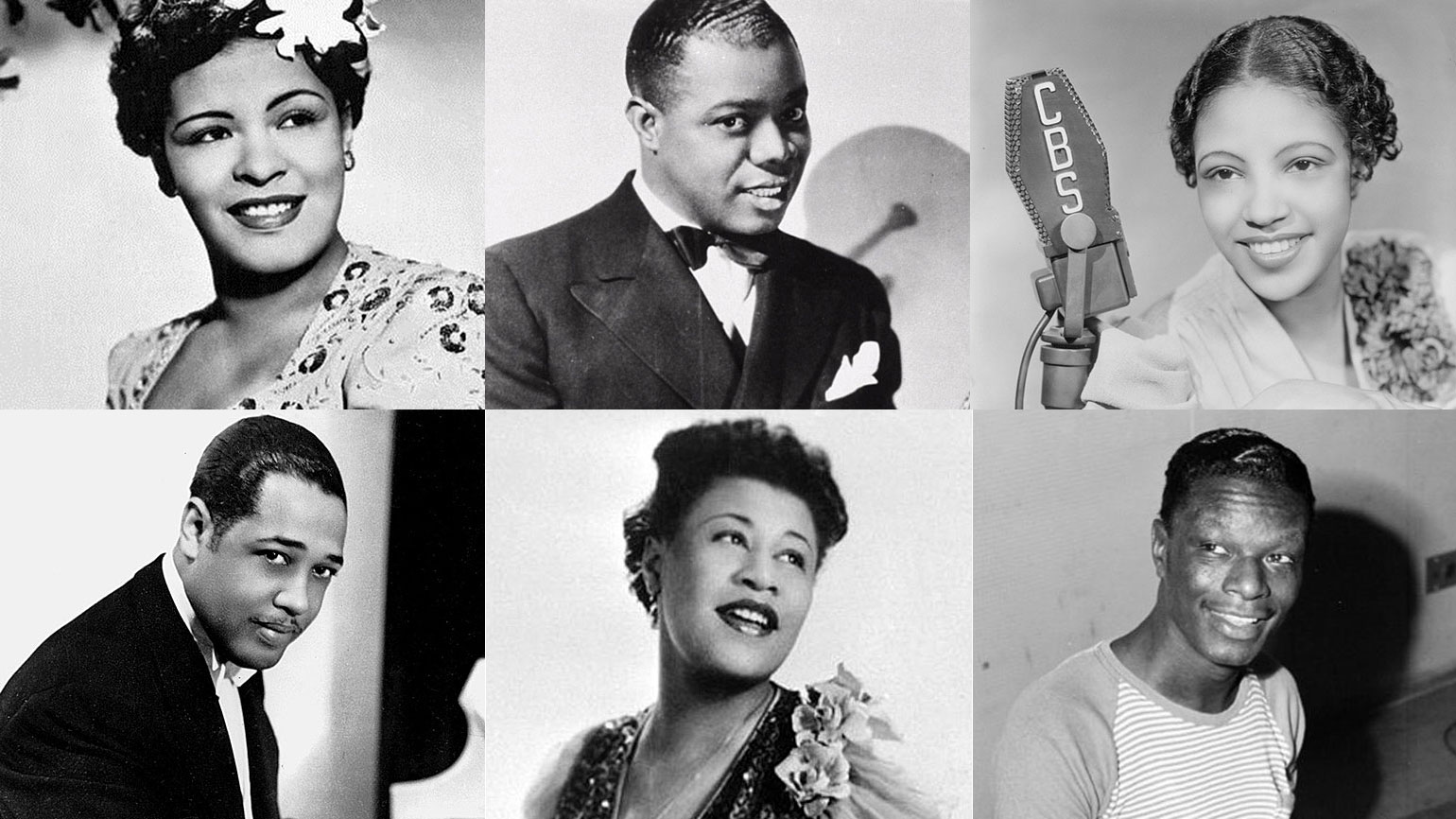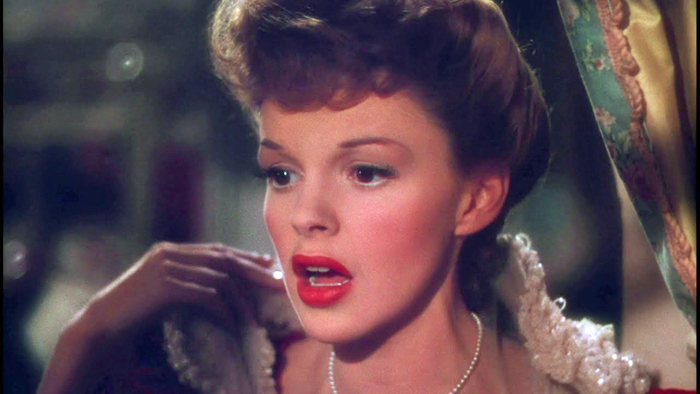Happy Juneteenth! Cladrite Radio is grateful for these great Black performers (and so many others) who have so enriched our lives and set our toes a-tappin’!



Few entertainers in history enjoyed as long a career as did Rose Marie, born 100 years ago today. Her career began when she was just four years old (known then as Baby Rose Marie, she had a weekly radio program that was broadcast nationally before Shirley Temple was even born), and she went on to enjoy success in vaudeville, radio, records, motion pictures, Broadway, and television.
In 2017, a delightful documentary, Wait for Your Laugh, was released that told the story of her amazing life and career, and we’re delighted to share a very lightly edited transcript of a telephone conversation we had with her shortly after the film’s release. Buckle your seat belts; it’s a delightfully wild ride. As you’ll soon see, even at 94, Rose Marie was as sharp and as funny as ever.
Cladrite Radio: I have a lot of things I’d like to talk to you about.
Rose Marie: First of all, let me ask you a question.
Cladrite Radio: Sure.
Rose Marie: Did you see the movie [Wait for Your Laugh]?
Cladrite Radio: I did!
Rose Marie: What’d you think of it?
Cladrite Radio: I loved it. I thought it was great.
Rose Marie: What’d you like about it?
Cladrite Radio: I’m very interested in the popular culture of the 1920s, ‘30s and ‘40s, in addition to …
Rose Marie: That’s my era.
Cladrite Radio: It sure is. I am involved with an online radio station that features music of that era. We play some of your records on the station.
Rose Marie: Oh, nice.
Cladrite Radio: When I got the chance to interview you, I was so excited. I’m a fan of your music, and I grew up with you on TV as well.
Rose Marie: I know, everybody says that. It makes me feel so old.
Cladrite Radio: Oh, well, I’m not so young myself.
Rose Marie: I’m 94, wanna bet?
Cladrite Radio: You’re doing great. You’re probably doing better at 94 than I am at 59.
Rose Marie: Okay.
Cladrite Radio: I wanted to ask you about the documentary. Whose idea…
Rose Marie: I’m very happy to tell you. I’m very proud of it. I love it. I’m so proud of [director] Jason Wise, I can’t stand it. I think he’s a genius. I think he’s going to be one of the biggest men in the business in a couple years. I think this will introduce him to everybody. I think he’ll even be bigger than Steven Spielberg.
Cladrite Radio: I’ll bet he wouldn’t mind that a bit.
Rose Marie: Oh, he’s wonderful. You have no idea. You don’t know how particular he is. When we decided to do this thing, I kept everything from the time I was three years old. Postcards, pictures, film, anything I had, I kept. When he talked about doing the documentary, he says, “Let’s talk.” I said, “I have everything in scrapbooks. Why don’t you just go through everything?” I emptied out my house, and I mean he cleaned me out of everything. He put it in that documentary. Just a genius.
Cladrite Radio: All the materials that we see in the documentary, the film clips we see and some of the programs and promotional materials and various things that are included in it…
Rose Marie: All mine. All mine that he dug up out of my house.
Read More »
On Cladrite Radio, we proudly feature the marvelous talents of many great African-American artists, performers whose musical gifts have brightened our days, lightened our loads and touched our hearts for decades. It’s painful to think that these giants experienced bigotry, racism and in some cases even physical violence during their lives, and it’s heartbreaking to be reminded that our country’s racist heritage is not yet a thing of the past, that in too many dark corners, it still festers and that precious lives continue to be lost to this hatred.

We want our African-American friends, listeners and followers—and all of our listeners and followers who stand for justice and equality in the US and around the world—to know that we love them, we respect them and we want what they want: a just society that values Black lives every bit as much as all other lives.
In celebration of the great Black artists who have so enriched our lives and in honor of—and solidarity with—those African Americans, past and present, whose lives have been impacted (and too often, ended prematurely) by bigotry and racist hatred, we are, beginning at midnight ET tonight (Friday, June 5), devoting 48 hours solely to music created by Black bandleaders, musicians and singers. We hope you’ll tune in throughout the weekend. #BLM
Our favorite Christmas song has long been Mel Tormé and Bob Wells’ The Christmas Song, made famous by Nat “King” Cole (and really, no one else need tackle the song—every other artist who’s taken a stab at it has fallen short, in our eyes), but coming in a close second is Have Yourself a Merry Little Christmas, credited to Hugh Martin and Ralph Blane (though Martin has since claimed he wrote it alone, with Blane’s encouragement) and introduced by Judy Garland in Vincent Minnelli‘s Meet Me in St. Louis (1944).

From its familiar opening lyrics—Chestnuts roasting on an open fire, Jack Frost nipping at your nose, yuletide carols being sung by a choir, and folks dressed up like Eskimos—The Christmas Song celebrates an idyllic holiday season, but let’s face it, for many, the holidays carry with them a tinge of melancholy—especially in difficult times like these—and Have Yourself a Merry Little Christmas openly acknowledges the bluer side of the yuletide.
In the lyrics as we know them, that melancholy is leavened by a certain “keep-your-chin-up sticktuitiveness,” but it wasn’t always so.
The first set of lyrics Martin delivered, which I found in this very informative 2007 Entertainment Weekly story by Chris Willman, were downright maudlin, intended to fit the mood of Garland’s character, who, at the point in the picture at which she sings the song, is upset that her father is moving the family from her beloved St. Louis to New York City.
The story has it that director Minnelli and Garland urged Martin to come up with something just a bit less gloomy, and he agreed, soon delivering a second set of lyrics, the ones Garland sings to young sister Margaret O’Brien in the movie.
Then, in 1957, Frank Sinatra, who was recording a Christmas album called A Jolly Christmas, asked Martin to kick the the Christmas cheer up yet another notch. He specifically asked the composer to revisit the line in the final verse about “muddling through,” and that’s how we came to have the line about hanging a shining star upon the highest bough in yet a third set of lyrics to the song.
Most folks are familiar with versions two and three—Linda Ronstadt melds the two sets of lyrics in her recording of the song—if not with the original gloomy lyrics.
But did you know Martin wrote a fourth set of lyrics? In 2001, the composer, then 86 years old, wrote an overtly religious set of lyrics to the song, entitled Have Yourself a Blessed Little Christmas.
Listen: Judy Garland—Have Yourself a Merry Little Christmas
Here are 10 things you should know about Nat “King” Cole, born 99 years ago today. One of the true giants of American music, Cole, as well-regarded as he still is, is not, in our opinion, given sufficient credit for his talents, accomplishments and contributions.